
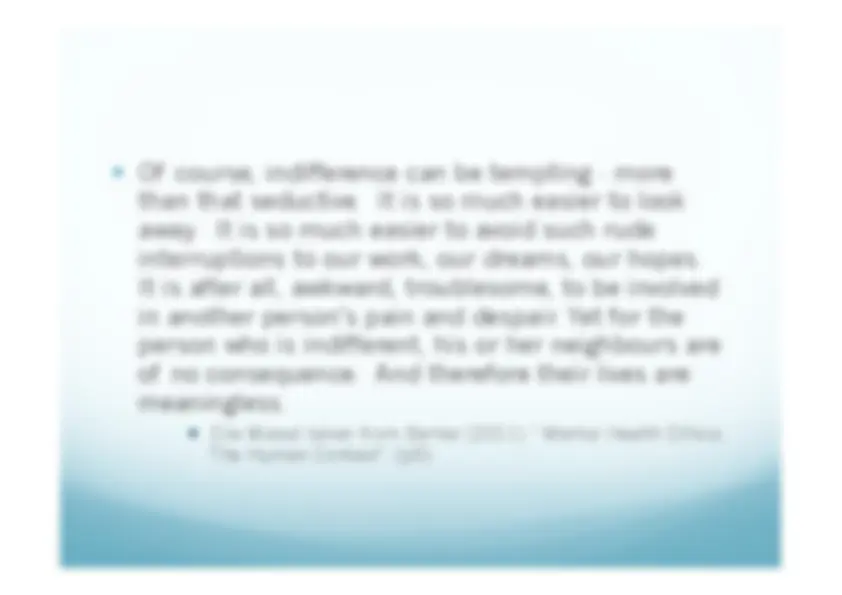

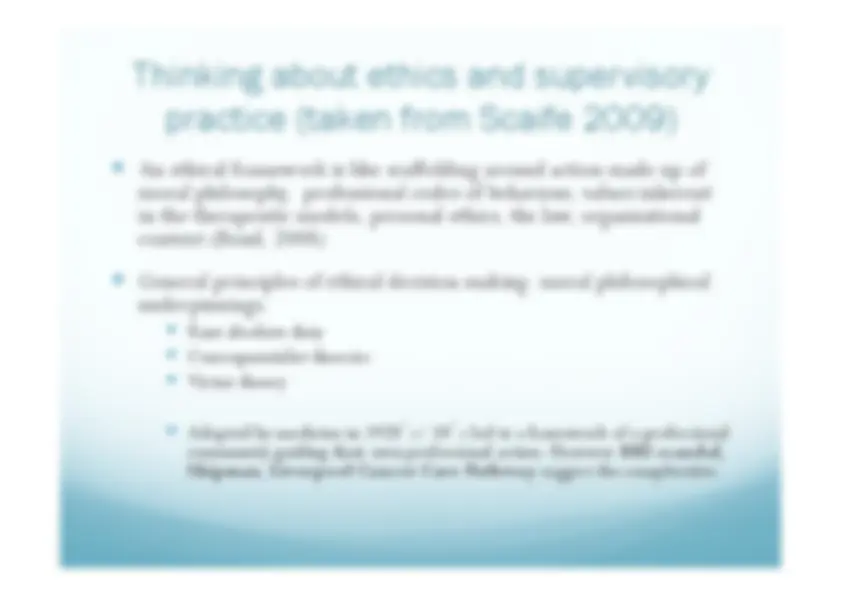
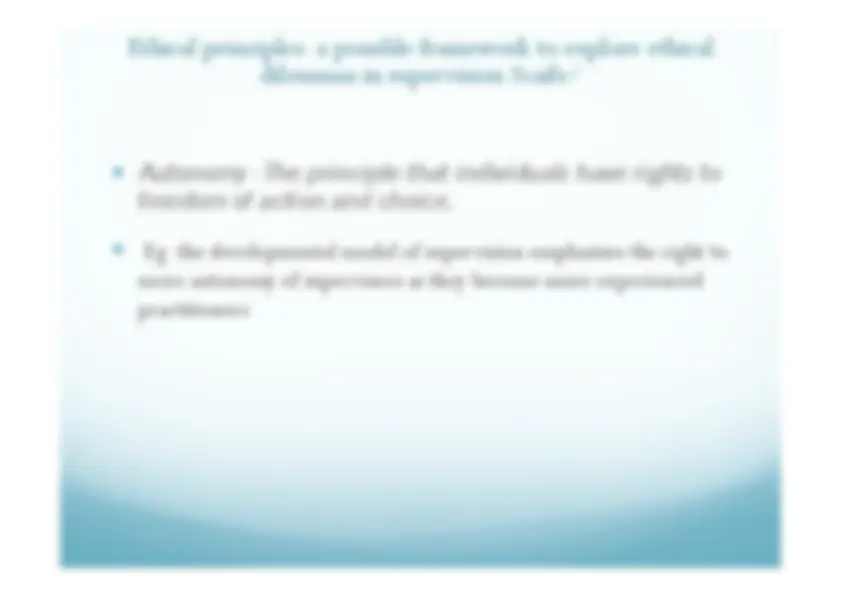
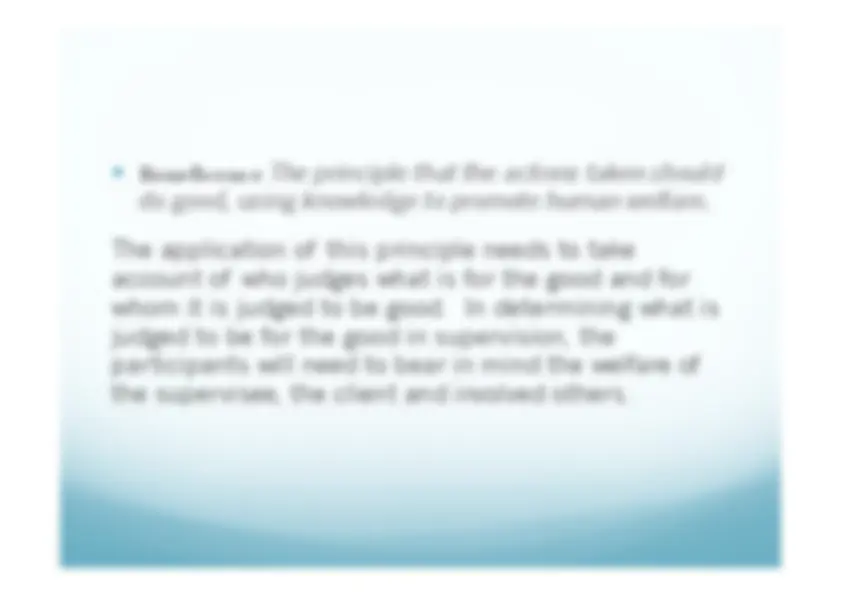
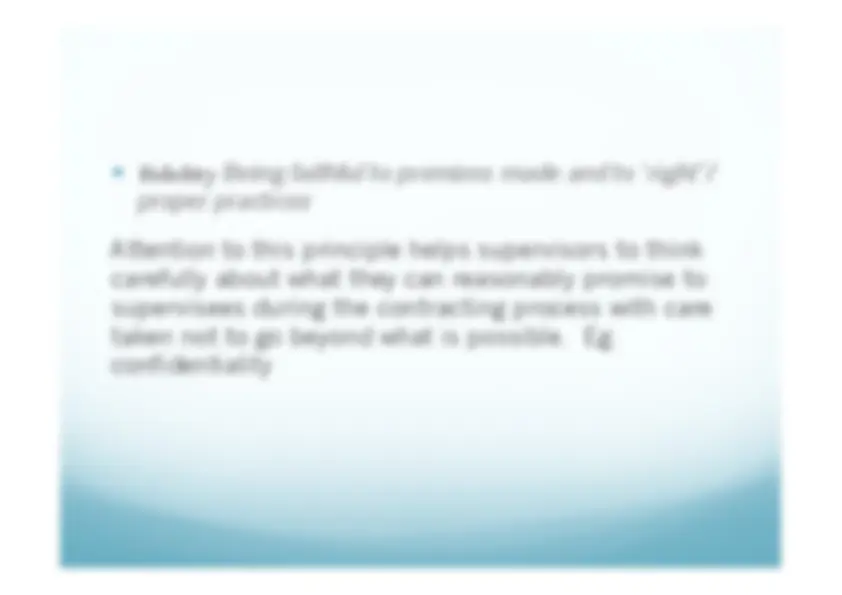
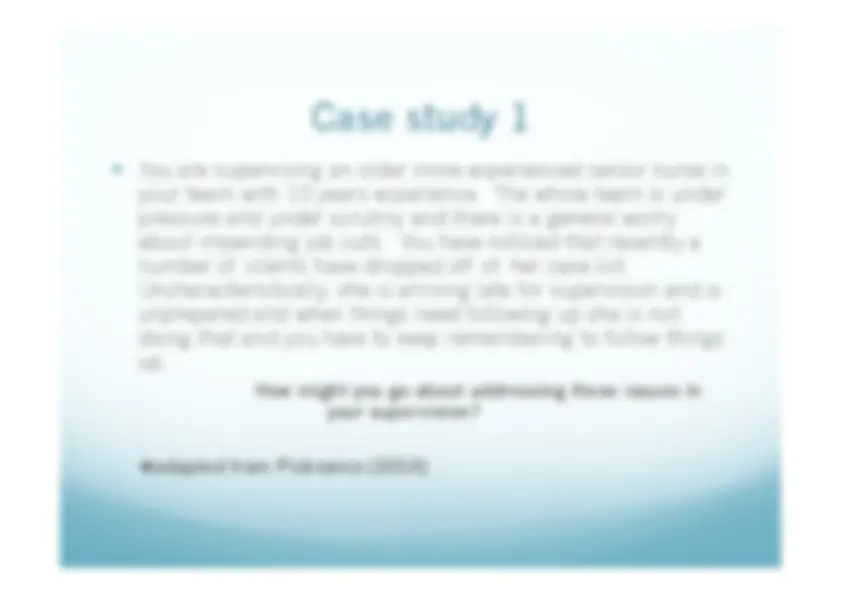
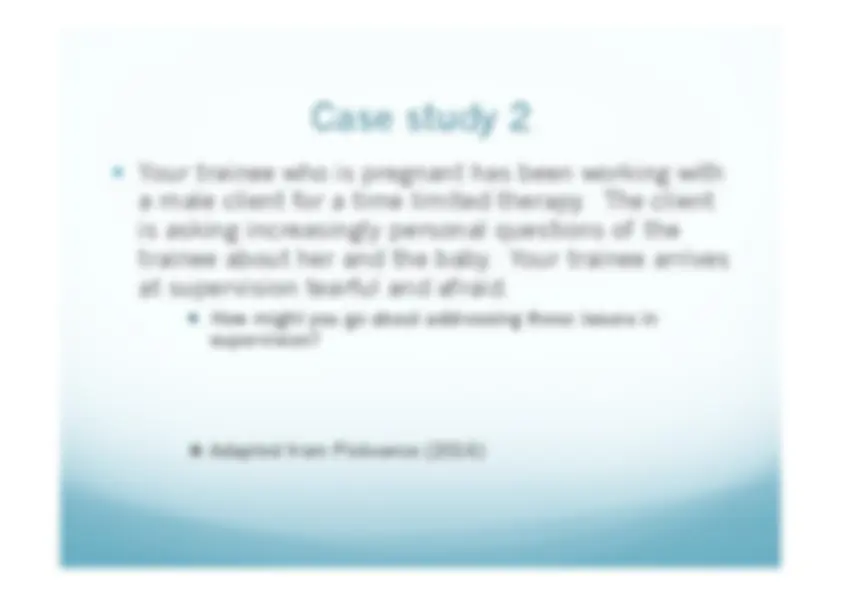
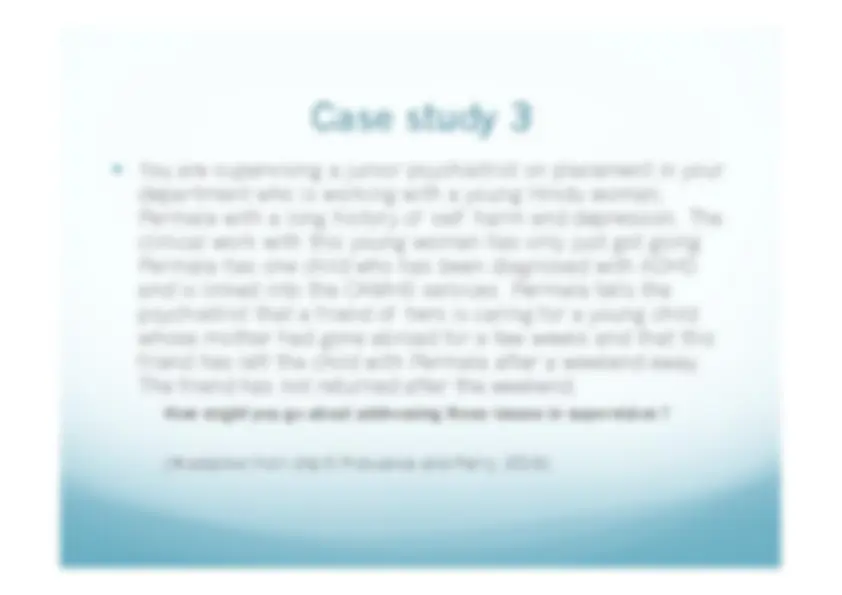
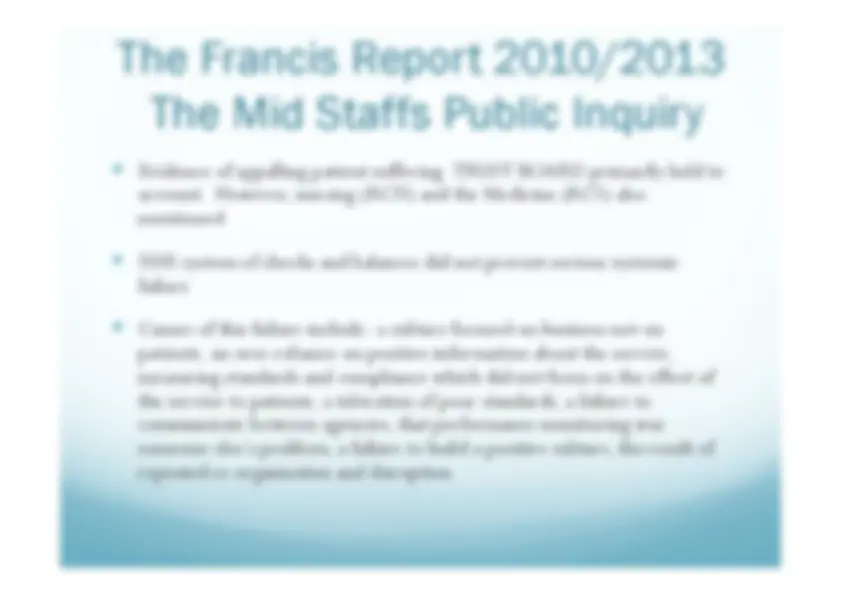
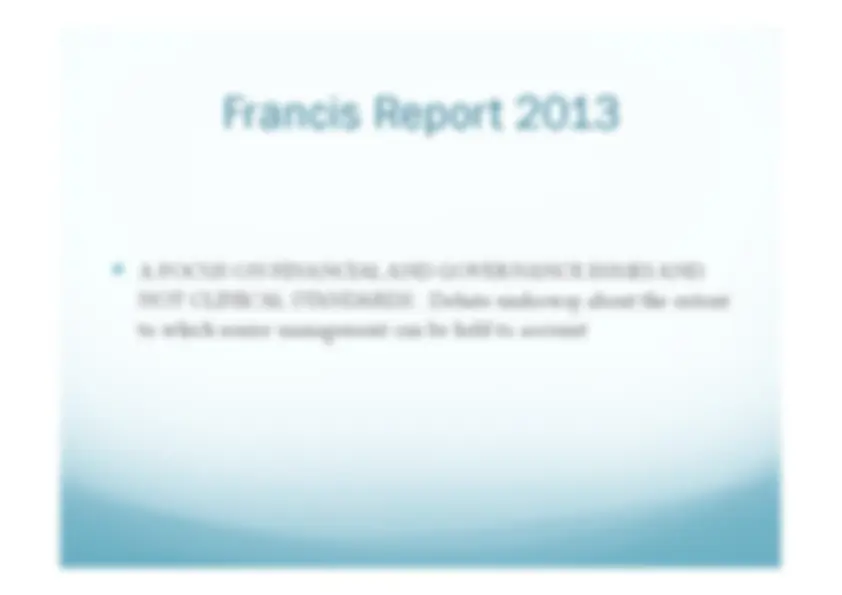
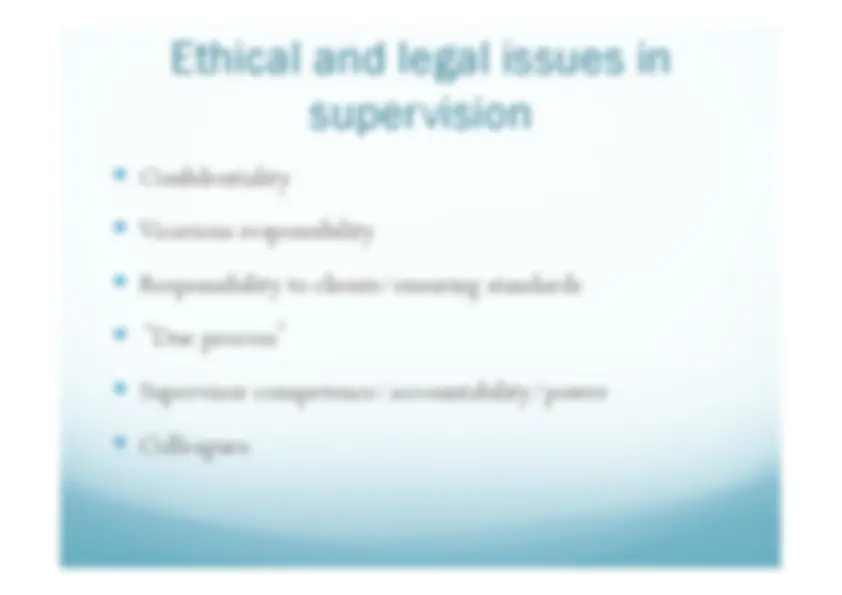

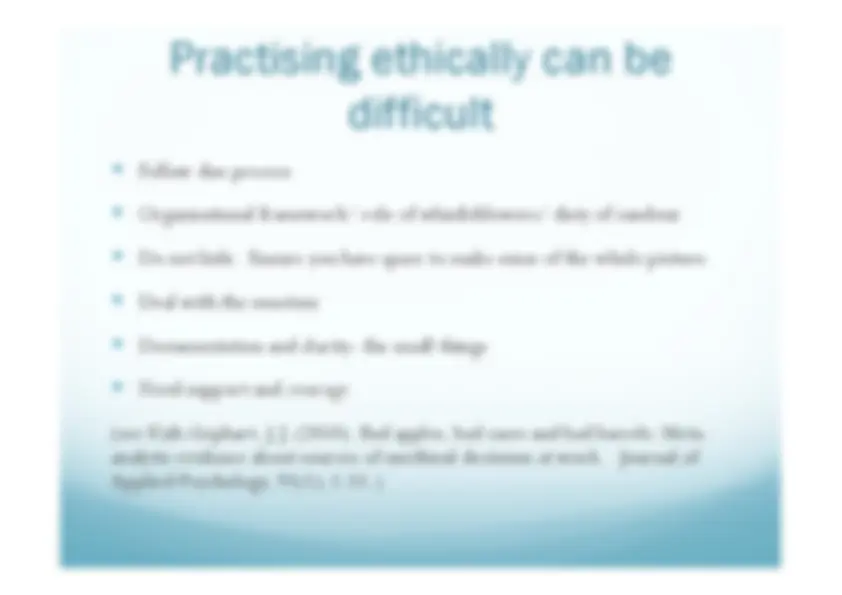
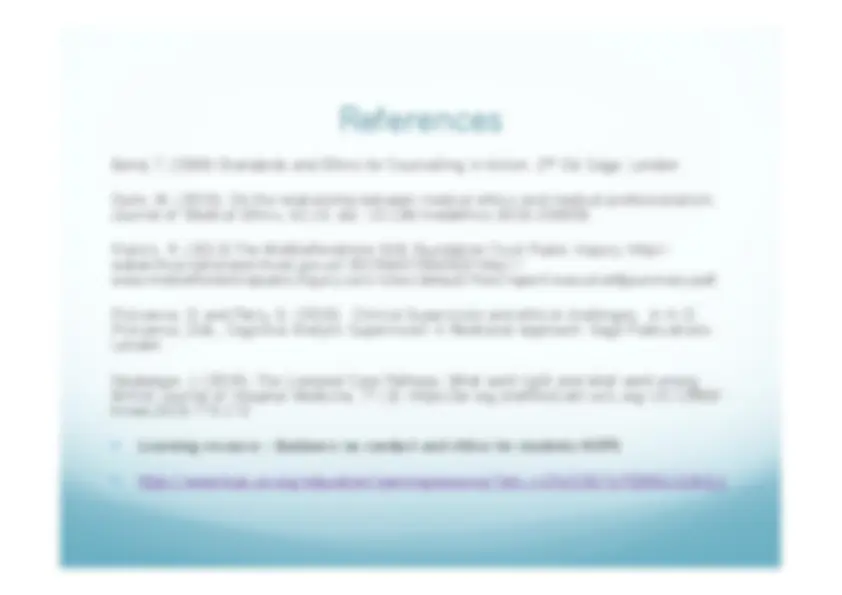


Study with the several resources on Docsity

Earn points by helping other students or get them with a premium plan


Prepare for your exams
Study with the several resources on Docsity

Earn points to download
Earn points by helping other students or get them with a premium plan
Community
Ask the community for help and clear up your study doubts
Discover the best universities in your country according to Docsity users
Free resources
Download our free guides on studying techniques, anxiety management strategies, and thesis advice from Docsity tutors
To discuss relevant philosophical/conceptual ideas. — To discuss challenges of ethical practice. — To apply principles in practice ...
Typology: Lecture notes
1 / 23

This page cannot be seen from the preview
Don't miss anything!
















ISW Day 2 Sue Walsh, Univ of Sheffield March 2018
seeing the ‘whole picture’.
Thinking about ethics and supervisory practice (taken from Scaife 2009)
moral philosophy, professional codes of behaviour, values inherent in the therapeutic models, personal ethics, the law, organisational context (Bond, 2008)
underpinnings. Kant absolute duty Consequentialist theories Virtue theory Adopted by medicine in 1920’s/ 30’s led to a framework of a professional community guiding their own professional action. However BRI scandal, Shipman, Liverpool Cancer Care Pathway suggest the complexities.
Professional codes
professionalism
Ethical principles- a possible framework to explore ethical dilemmas in supervision Scaife/
freedom of action and choice.
more autonomy of supervisees as they become more experienced practitioners
proper practices Attention to this principle helps supervisors to think carefully about what they can reasonably promise to supervisees during the contracting process with care taken not to go beyond what is possible. Eg. confidentiality
opportunity rule’ requires that the supervisee be provided with sufficient assistance to overcome any disadvantaging conditions resulting from her or his learning abilities or difficulties, or social context. Eg. providing more supervision to a struggling supervisee versus equity to all; no discrimination.
The needs of one person or group may be privileged over another, eg children and families
Case study 1 You are supervising an older more experienced senior nurse in your team with 10 years experience. The whole team is under pressure and under scrutiny and there is a general worry about impending job cuts. You have noticed that recently a number of clients have dropped off of her case list. Uncharacteristically, she is arriving late for supervision and is unprepared and when things need following up she is not doing that and you have to keep remembering to follow things up. How might you go about addressing these issues in your supervision? v adapted from Pickvance (2016)
Case study 2
a male client for a time limited therapy. The client is asking increasingly personal questions of the trainee about her and the baby. Your trainee arrives at supervision tearful and afraid. How might you go about addressing these issues in supervision? v Adapted from Pickvance (2016)
Factors to consider
(embedded in your contract). Validated worries and life stress. Explore impact on work on self. Explore steps to be taken ( discuss manager, reduce work, go off sick), refocus the work drawing on theoretical model)
threat. Explore how trainee had managed any boundary infringements- had she discussed them with client, the meaning of these interpretations, leading to assessment of risk and whether to carry on
Factors to consider
influence practice of an experienced colleague? Accountable to own professional body. Tension between absolute duty and breaching client confidentiality, the safeguarding reporting issue, cultural differences, a matter of professional judgement vs enacting a legislative duty
NOT CLINICAL STANDARDS. Debate underway about the extent to which senior management can be held to account